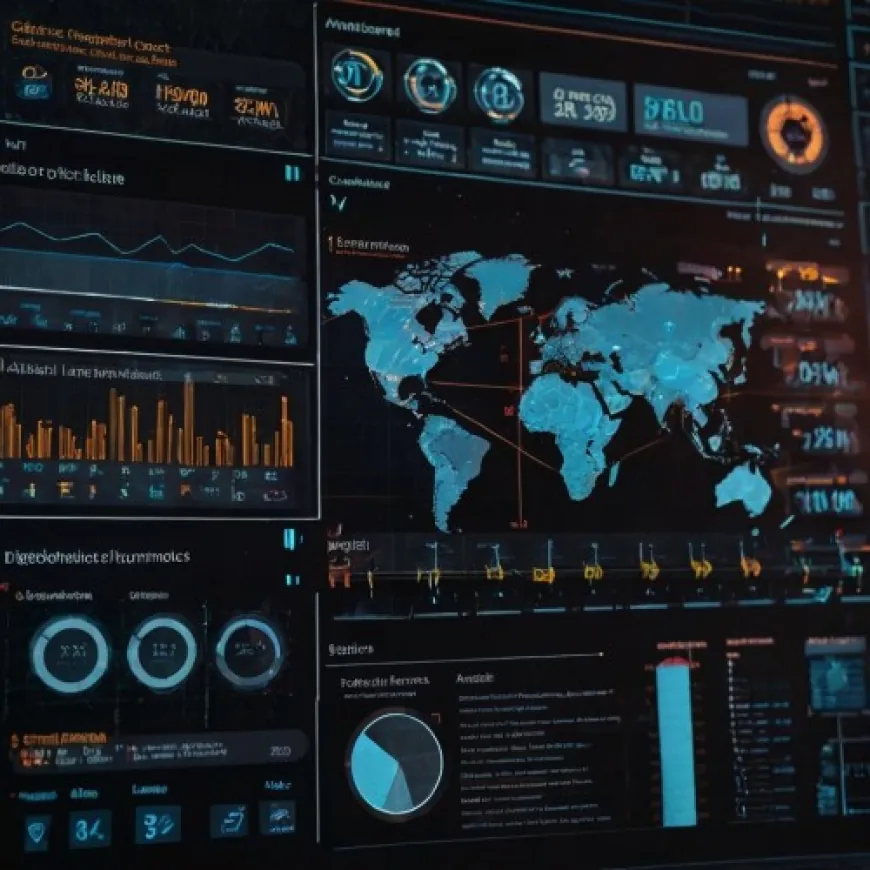Navigating the eGRC Market Landscape Toward 2031
The eGRC market, which encompasses solutions for governance, risk management, and compliance, is evolving significantly

The eGRC market, which encompasses solutions for governance, risk management, and compliance, is evolving significantly as businesses prioritize resilience and adaptability in a rapidly changing regulatory environment. By 2031, the market is expected to witness substantial growth driven by rising cybersecurity threats, stringent compliance requirements, and a push for data privacy protections worldwide. These factors are compelling organizations to adopt more sophisticated eGRC solutions to manage their risks and ensure compliance effectively.

One key trend influencing the eGRC landscape is the integration of artificial intelligence (AI) and machine learning (ML) capabilities. As organizations face increasingly complex risks, eGRC solutions that can automate risk assessment, monitor compliance in real time, and offer predictive analytics are becoming essential. For instance, AI-driven eGRC tools can quickly identify vulnerabilities in IT systems and alert relevant departments before any compliance gaps or breaches occur. This proactive approach is valuable as it helps businesses remain compliant while reducing the risk of costly penalties and reputational damage.
Moreover, with the growing complexity of regulatory frameworks, particularly in sectors such as finance, healthcare, and energy, there is a heightened need for customizable eGRC solutions that can cater to specific industry standards. Cloud-based eGRC platforms are also gaining traction due to their flexibility and scalability, allowing organizations to adapt to changing regulatory needs seamlessly. This trend aligns with the broader adoption of digital transformation strategies across industries, making eGRC solutions accessible and more efficient for organizations of all sizes.
Another driver in the eGRC market is the increasing focus on data privacy and security. Regulations such as the General Data Protection Regulation (GDPR) in Europe and the California Consumer Privacy Act (CCPA) in the United States have underscored the need for data protection, prompting businesses worldwide to enhance their compliance capabilities. By 2031, we can anticipate that data privacy will be even more critical as new regulations emerge, further influencing the adoption of eGRC solutions globally.
Despite these advancements, challenges remain. The implementation of eGRC solutions often requires significant investments, both in terms of finances and time, which can be a hurdle for smaller businesses. Furthermore, the need for skilled professionals to manage and interpret eGRC tools is also critical, potentially creating a talent gap in the industry.
Looking ahead, the eGRC market is likely to see continued growth as organizations strive for compliance and risk resilience. The rise of regulatory technology (RegTech), which provides innovative solutions for managing regulations and monitoring compliance, could also complement traditional eGRC solutions. Together, these developments are shaping a future where organizations can better manage their risks and align with regulatory demands, ultimately fostering a safer and more compliant business environment by 2031.












